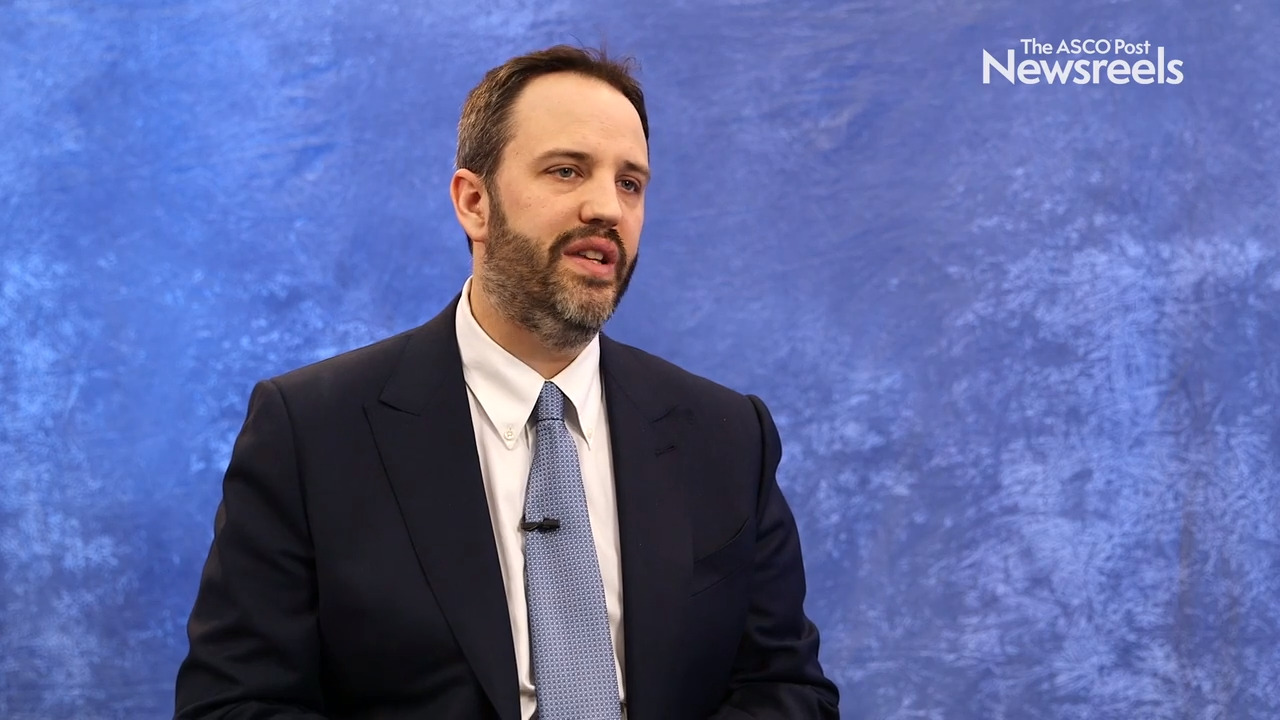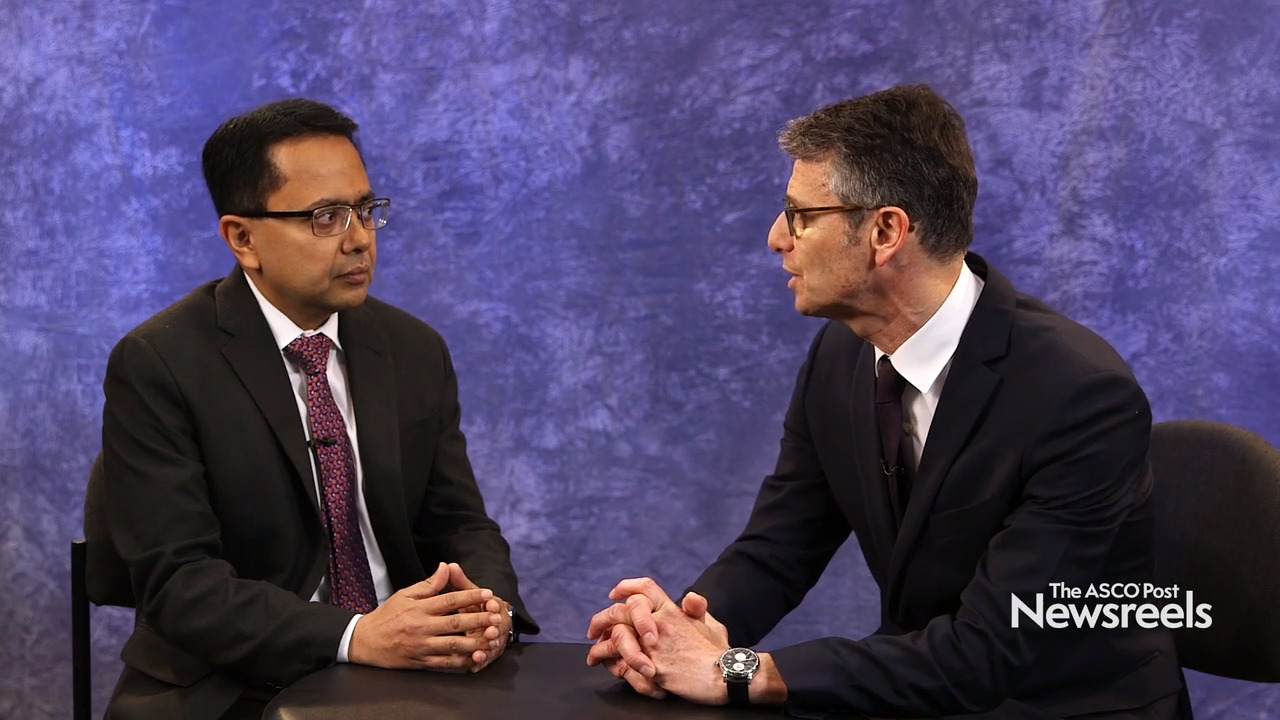Gilberto Lopes, MD, MBA, on the RELAY Trial in Metastatic NSCLC: Erlotinib and Ramucirumab in EGFR Mutant–Positive Disease
2019 ASCO Annual Meeting
Gilberto Lopes, MD, MBA, of the Sylvester Comprehensive Cancer Center at the University of Miami, offers commentary on phase III findings from the RELAY study, which showed that erlotinib plus ramucirumab led to superior progression-free survival in previously untreated patients with EGFR mutant–positive NSCLC (Abstract 9000).
François-Xavier Mahon, MD, PhD, of the Université Bordeaux and Institut Bergonie, discusses results of the ENESTop study, which demonstrated the long-term durability and safety of treatment-free remission in chronic-phase CML after second-line nilotinib (Abstract 7005).
Jame Abraham, MD, of the Cleveland Clinic, provides commentary on the NALA study findings on neratinib plus capecitabine vs lapatinib plus capecitabine in patients previously treated with HER2-positive metastatic breast cancer (Abstract 1002).
Justin F. Gainor, MD, of Massachusetts General Hospital, discusses updated findings from the ARROW study in which BLU-667, a selective RET inhibitor, demonstrated clinical activity and tolerability in patients with advanced RET fusion–positive non–small cell lung cancer (Abstract 9008).
Mark J. Levis, MD, PhD, of The Sidney Kimmel Comprehensive Cancer Center at Johns Hopkins University, discusses the effect of gilteritinib on survival in patients with FLT3-mutated relapsed/refractory AML who have common co-mutations or a high FLT3-ITD allelic ratio, and the importance of FLT3-ITD testing at diagnosis and again at relapse (Abstract 7000).
Neeraj Agarwal, MD, of the Huntsman Cancer Institute, and Arnaud Méjean, MD, PhD, of the Hôpital Européen Georges-Pompidou, Paris Descartes University, discuss an update to the CARMENA trial with new phase III study results on the benefit of cytoreductive nephrectomy followed by sunitinib vs sunitinib alone in metastatic renal cell carcinoma (Abstract 4508).





